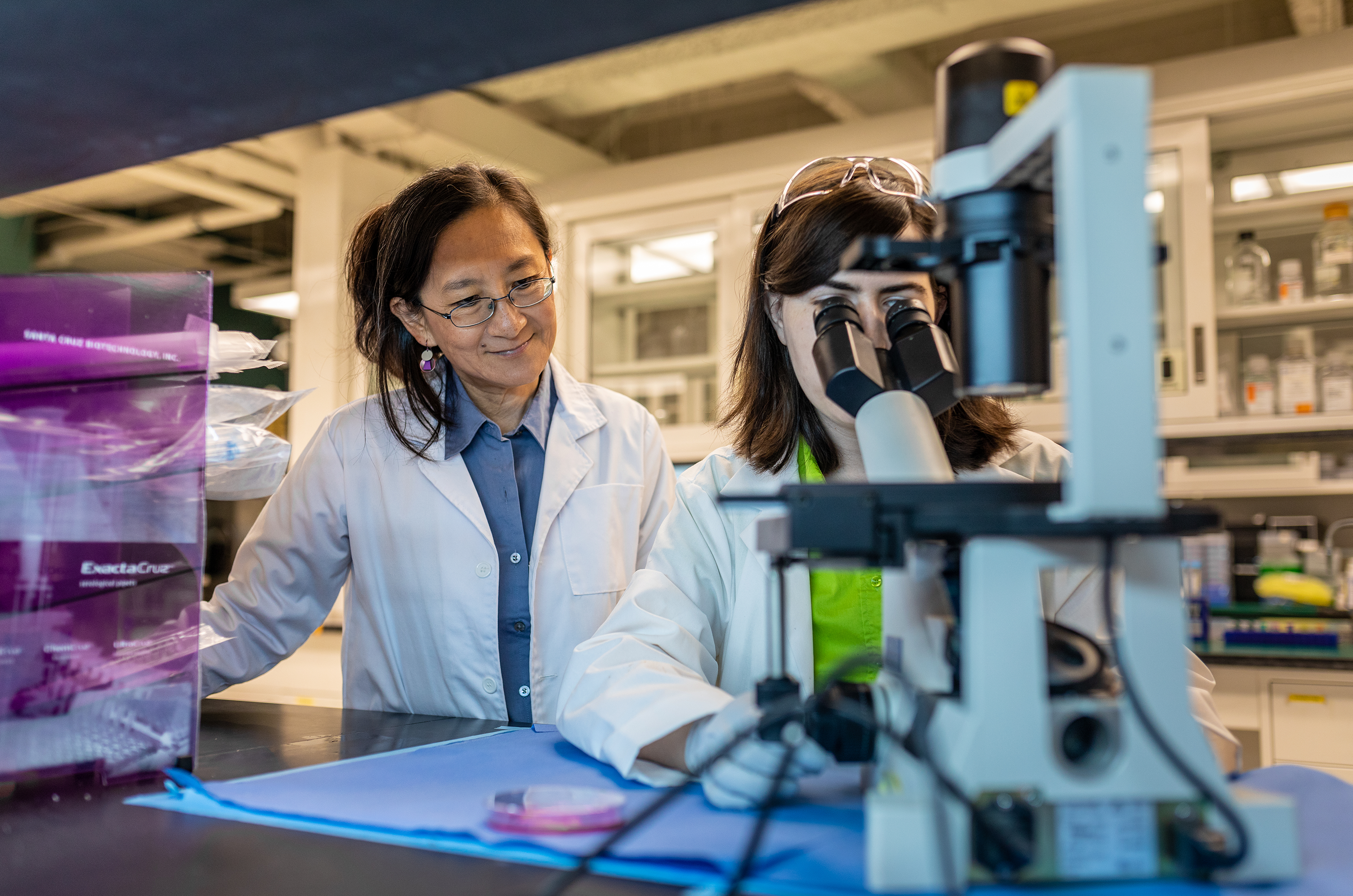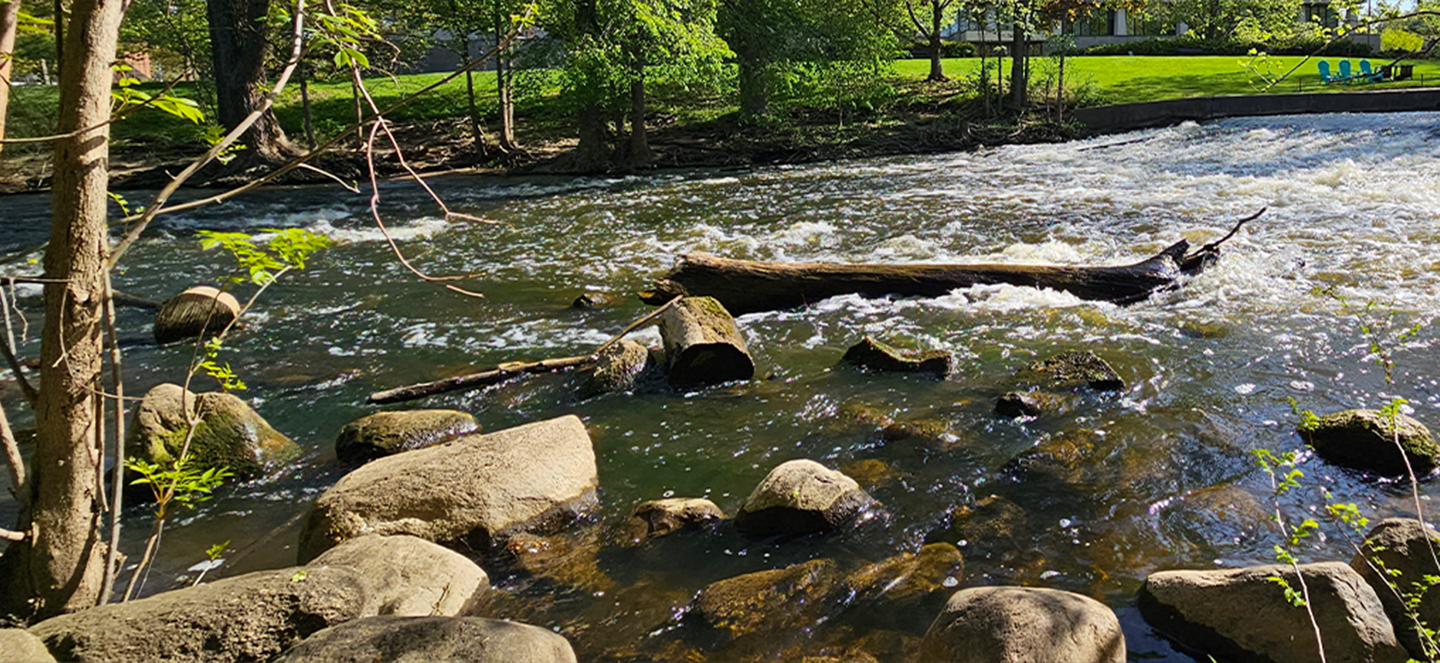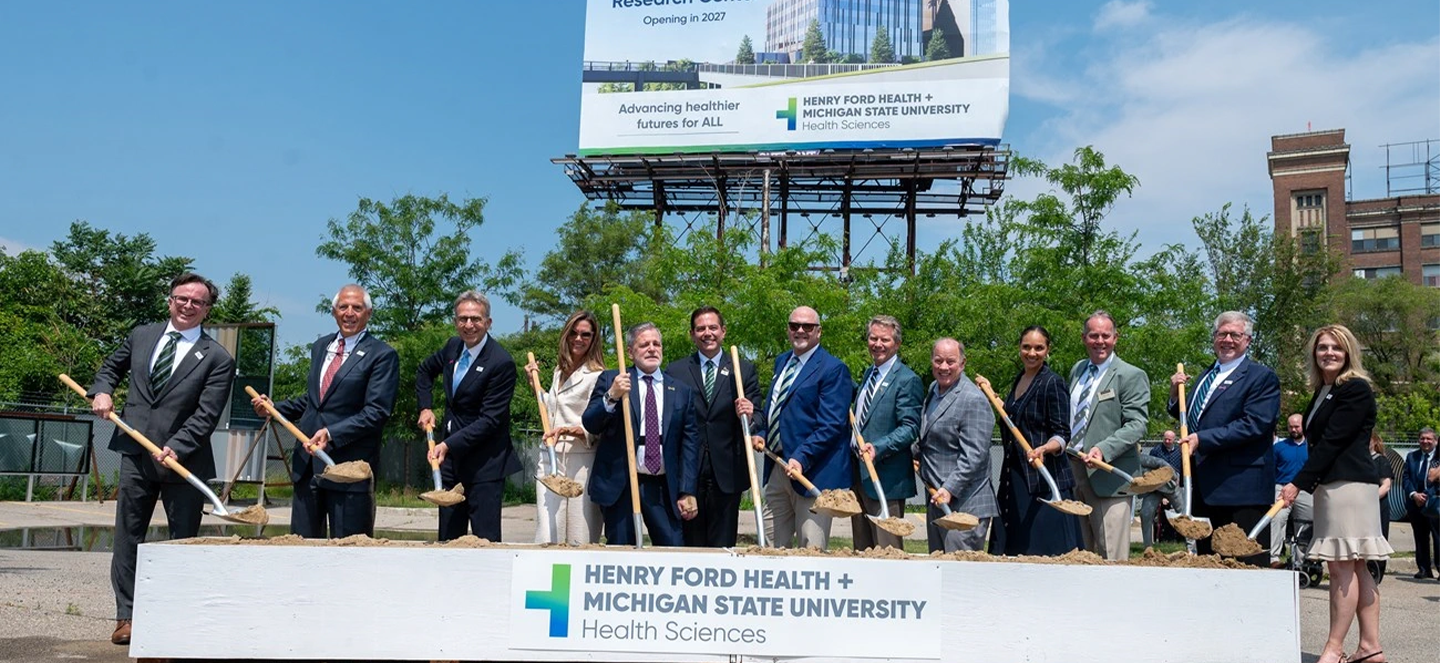
Overview
Research and creative activity are part of the daily life of professors and students alike at Michigan State University. What scientists learn in their laboratories, becomes what they teach and transfer into the marketplace. The goal of such curiosity, creativity, and learning, is a deeper understanding of individuals, society, and the world.
In the land-grant, problem-solving tradition, Michigan State University’s research breakthroughs have improved life for people around the world, from the cross-fertilization of corn in the 1870s to successful anticancer drugs in the 1960s, and to current efforts in climate resilient agriculture, supply chain management, and novel approaches to STEM education.
The Office of Research and Innovation supports MSU’s research and creative activity by administering research funding, ensuring research integrity for both faculty and students, providing grant support services, fostering collaboration, licensing university inventions, and overseeing regulatory compliance.

MSU Water Alliance

Henry Ford Health System Partnership
Responsibilities of the Office of Research and Innovation
In collaboration with the Provost, the Office of Research and Innovation, under the leadership of Shashank Priya, is responsible for recruiting outstanding faculty through MSU's Global Impact Initiative, and maintaining synergy between research and creative scholarship and the education of graduate students through The Graduate School. The Office also:
- Promotes excellence in research at Michigan State University by providing many types of support, such as:
- seed funding for promising research and creative activity
- coordination and support of the research grant proposal process
- the latest research training, facilities and infrastructure
- proactive opportunities for sponsored research
- protection and licensing of intellectual property
- support for scale-up and commercialization of ideas, and
- recognition of research excellence in faculty recruitment, retention, and career development
- Oversees the ethical conduct of research, including conflict of interest issues
- Implements university policies relevant to research and creative activities
- Enhances the safety of researchers and research subjects
- Assures compliance with state and federal regulations regarding research
- Seeks ways to contribute to the state’s economic development by leveraging the university's intellectual capital
Administrative Units Reporting to Research and Innovation
Alphabetical listing of units reporting to Research and Innovation:
- Animal Care Program
- AXIA Institute (Midland)
- Center for Statistical Training and Consulting (C-STAT)
- Clinical and Translational Sciences Institute (CTSI)
- Communications and Accessibility
- Environmental Health & Safety (EHS)
- Export Control and Trade Sanctions
- Faculty Conflict of Interest
- The Graduate School
- Human Research Protection Program (HRPP)
- Institute for Cyber-Enabled Research (ICER)
- Institutional Animal Care and Use Committee (IACUC)
- Institutional Stem Cell Research
- MSU AgBioResearch
- MSU Bioeconomy Institute (Holland and Lansing facilities)
- MSU Innovation Center
- Office of Interdisciplinary Research and Internal Grants
- MSU Research Centers and Institutes
- MSU St. Andrews (Midland)
- Office of Research Regulatory Support (ORRS)
- Office of Sponsored Programs (part of Sponsored Program Administration; also see Contract and Grant Administration and the unit directory.)
- Proposal Services (grant editing, proposal consulting and more)
- Research Integrity Officer (RIO)
- Research Technology Support Facility (RTSF)
- University Research Organization (URO)
Communications to Research Faculty
Stay informed with the latest updates and essential information for research faculty from the Office of Research and Innovation.
